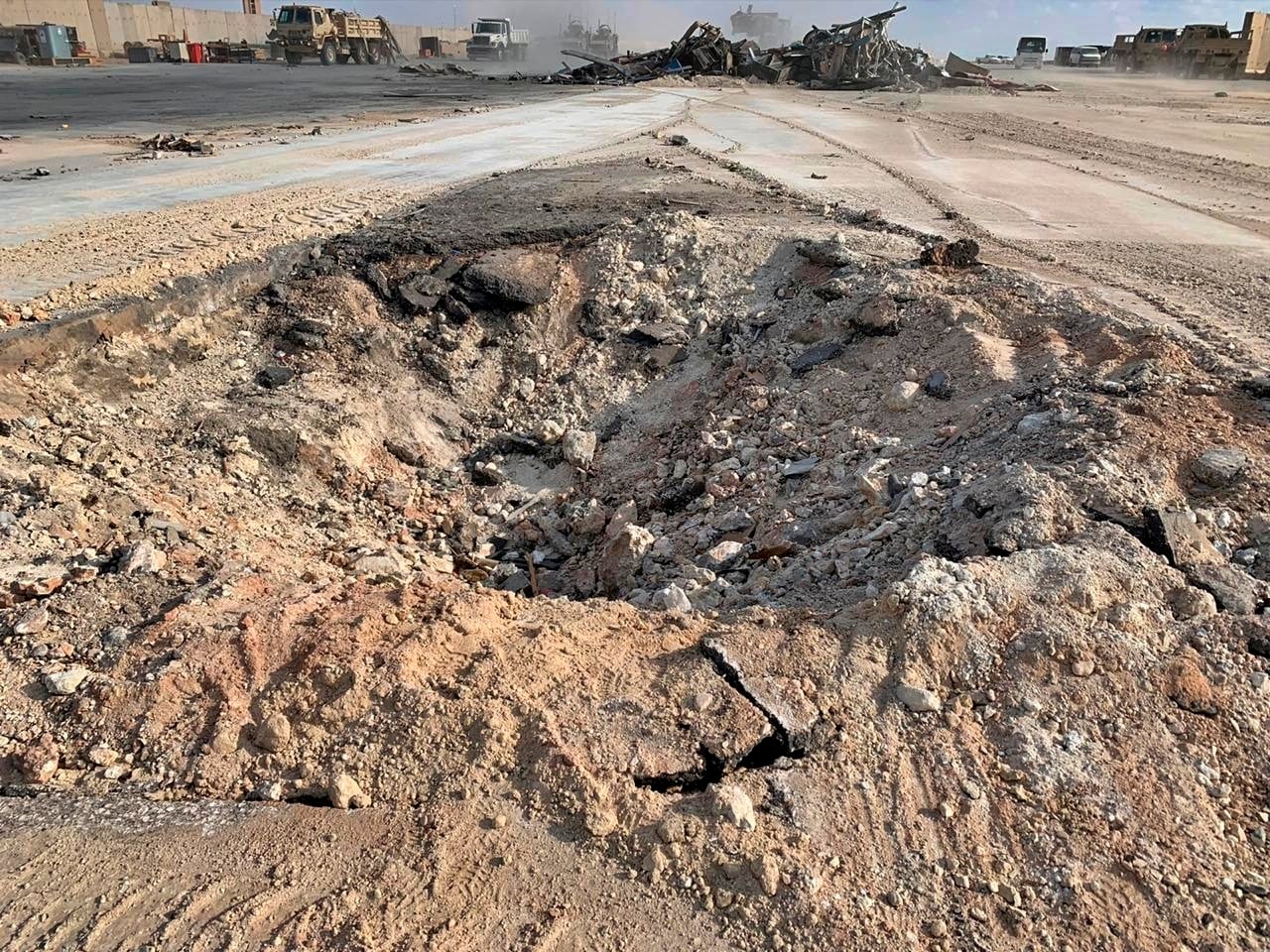In the aftermath of the Jan. 2020 missile attack on al-Asad Air Base, Iraq, U.S. Central Command did not properly report and track traumatic brain injuries received by more than 100 troops.
That’s the conclusion of a Defense Department Inspector General report released Wednesday. The reason given for the lapse is that officials thought the regulations were unclear, and because CENTCOM officials opted to use electronic health records to track, instead of creating a separate tally for the event, as required by a DoD instruction.
At the same time, the report found, the Joint Staff didn’t follow up with CENTCOM to make sure they were following that regulation.
“... the DoD cannot determine whether all Service members are being properly diagnosed and treated for TBIs in deployed settings,” according to the report, because the al-Asad injuries were not reported to the Joint Trauma Analysis and Prevention of Injury in Combat Program Office in a required monthly tracker.
The findings represent a bigger issue, not just with the al-Asad injuries. If JTAPIC is not getting a monthly update of all “potentially concussive events,” as the instruction assumes, DoD has no visibility on the number of brain injuries occurring in CENTCOM.
“Finally, without consistent and adequate information on PCEs, Service members may not be eligible to receive disability benefits or care associated with a PCE from the Department of Veterans Affairs after separating from the military,” according to the DoDIG findings.
The report recommends that the chairman of the Joint Chiefs stand up an “Office of Primary Responsibility” to make sure combatant commands are complying with guidance to track PCEs.
It also recommends amending the instruction to include that new office, as well as specifically include requirements for monthly tracking reports and details.
The vice director of the Joint Staff concurred with the IG’s findings, according to the report.
RELATED

The report is the first of two launched after the al-Asad attack.
In October, DoDIG announced a second project, spurred by the findings of the report released Wednesday.
The new report “will delve deeper into some of the items we learned in the first project,” DoDIG spokewoman Dwrena Allen told Military Times.
More than two dozen troops were awarded Purple Hearts as a result of injuries suffered in the al-Asad attack.
Meghann Myers is the Pentagon bureau chief at Military Times. She covers operations, policy, personnel, leadership and other issues affecting service members.





